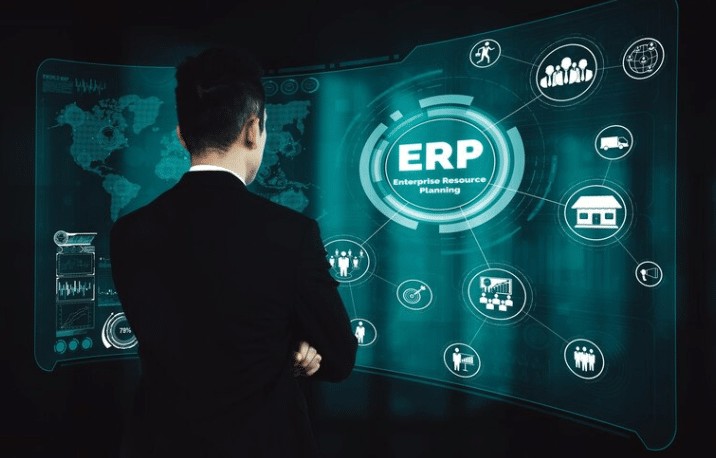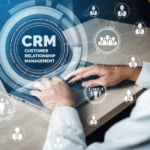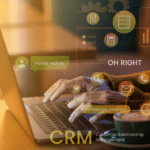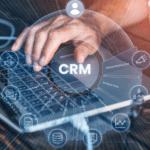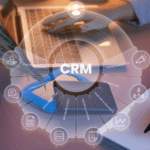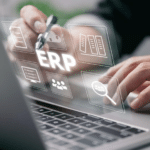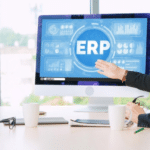In the construction industry, efficient management of projects, resources, and financials is critical to success. Construction ERP (Enterprise Resource Planning) solutions offer a comprehensive way to streamline operations, enhance productivity, and improve profitability. This article explores the importance of construction ERP solutions, their key features, and how they can transform construction management.
I. Understanding Construction ERP Solutions
A. What is Construction ERP?
Construction ERP is a software platform designed specifically for the construction industry. It integrates various business processes, including project management, procurement, financials, human resources, and supply chain management, into a single system.
B. Importance of Construction ERP
Construction ERP solutions are essential for managing complex construction projects, ensuring timely completion, maintaining budgets, and improving overall efficiency. They provide real-time insights, streamline workflows, and facilitate better decision-making.
II. Key Features of Construction ERP Solutions
A. Project Management
- Project Planning and Scheduling: Construction ERP systems offer tools for creating detailed project plans, setting milestones, and scheduling tasks. This ensures that projects are completed on time and within budget.
- Resource Allocation: Efficiently allocate resources such as labor, equipment, and materials to various tasks, reducing wastage and ensuring optimal utilization.
B. Financial Management
- Budgeting and Forecasting: Track project costs, create accurate budgets, and forecast future expenses. This helps in maintaining financial control and avoiding cost overruns.
- Accounting: Manage accounts payable and receivable, track expenses, and generate financial reports, ensuring transparency and compliance with financial regulations.
C. Procurement Management
- Vendor Management: Maintain a database of vendors, track vendor performance, and manage contracts and agreements.
- Purchase Orders: Automate the creation, approval, and tracking of purchase orders, ensuring timely procurement of materials and services.
D. Supply Chain Management
- Inventory Management: Monitor stock levels, track inventory usage, and manage reorder points to avoid material shortages or excess stock.
- Logistics: Optimize logistics and transportation to ensure timely delivery of materials to construction sites.
E. Human Resource Management
- Employee Management: Track employee details, manage payroll, and monitor labor costs.
- Training and Development: Plan and track employee training programs to ensure a skilled workforce.
F. Document Management
- Document Control: Store and manage project documents, drawings, and contracts in a centralized repository.
- Version Control: Track changes to documents and ensure that all stakeholders have access to the latest versions.
III. Benefits of Implementing Construction ERP Solutions
A. Improved Efficiency and Productivity
By automating manual processes and integrating various business functions, construction ERP systems help improve efficiency and productivity. Employees can focus on more value-added activities, reducing time and effort spent on administrative tasks.
B. Enhanced Collaboration
Construction ERP solutions facilitate better collaboration between different departments and stakeholders. Real-time data sharing and communication ensure that everyone is on the same page, leading to smoother project execution.
C. Better Financial Control
With robust financial management tools, construction ERP systems provide better control over project budgets and expenses. Real-time financial data helps in making informed decisions and avoiding cost overruns.
D. Increased Visibility and Transparency
ERP systems offer real-time insights into project performance, resource utilization, and financials. This increased visibility helps in identifying potential issues early and taking corrective actions.
E. Compliance and Risk Management
Construction ERP solutions help ensure compliance with industry regulations and standards. They also provide tools for risk management, helping to identify and mitigate potential risks in construction projects.
IV. Choosing the Right Construction ERP Solution
A. Assess Your Business Needs
- Identify Key Requirements: Determine the specific needs of your business, such as project management, financial management, or procurement.
- Scalability: Choose an ERP solution that can scale with your business as it grows.
B. Evaluate ERP Vendors
- Experience and Expertise: Select a vendor with experience in the construction industry and a proven track record of successful implementations.
- Customer Support: Ensure the vendor offers robust support and training services to help you get the most out of your ERP system.
C. Consider Deployment Options
- Cloud-Based ERP: Offers flexibility, scalability, and lower upfront costs. Ideal for businesses looking for quick deployment and minimal IT infrastructure.
- On-Premises ERP: Provides more control and customization but requires significant investment in hardware and IT resources.
D. Integration Capabilities
Ensure the ERP solution can integrate seamlessly with your existing systems and third-party applications. This will help in maintaining data consistency and avoiding duplication of efforts.
E. User Experience
Choose an ERP system with an intuitive and user-friendly interface to ensure quick adoption by employees. Comprehensive training programs should also be available to help users get up to speed.
V. Implementation Best Practices
A. Develop a Detailed Implementation Plan
Create a comprehensive plan that outlines the steps, timelines, and resources required for the ERP implementation. Assign responsibilities and set clear milestones to track progress.
B. Involve Key Stakeholders
Involve key stakeholders from different departments in the implementation process. This ensures that the ERP system meets the needs of all users and encourages buy-in from employees.
C. Provide Comprehensive Training
Invest in thorough training programs to ensure that employees understand how to use the ERP system effectively. Ongoing support should also be available to address any issues or challenges.
D. Monitor and Optimize
Continuously monitor the performance of the ERP system and gather feedback from users. Use this information to identify areas for improvement and optimize processes to maximize the benefits of the ERP solution.
VI. Conclusion
Implementing a construction ERP solution is a strategic move that can significantly improve the efficiency, productivity, and profitability of your construction business. By integrating various business processes into a single platform, construction ERP systems provide real-time insights, enhance collaboration, and offer better financial control. When choosing an ERP solution, it’s essential to assess your business needs, evaluate vendors, and consider deployment options to ensure a successful implementation.
